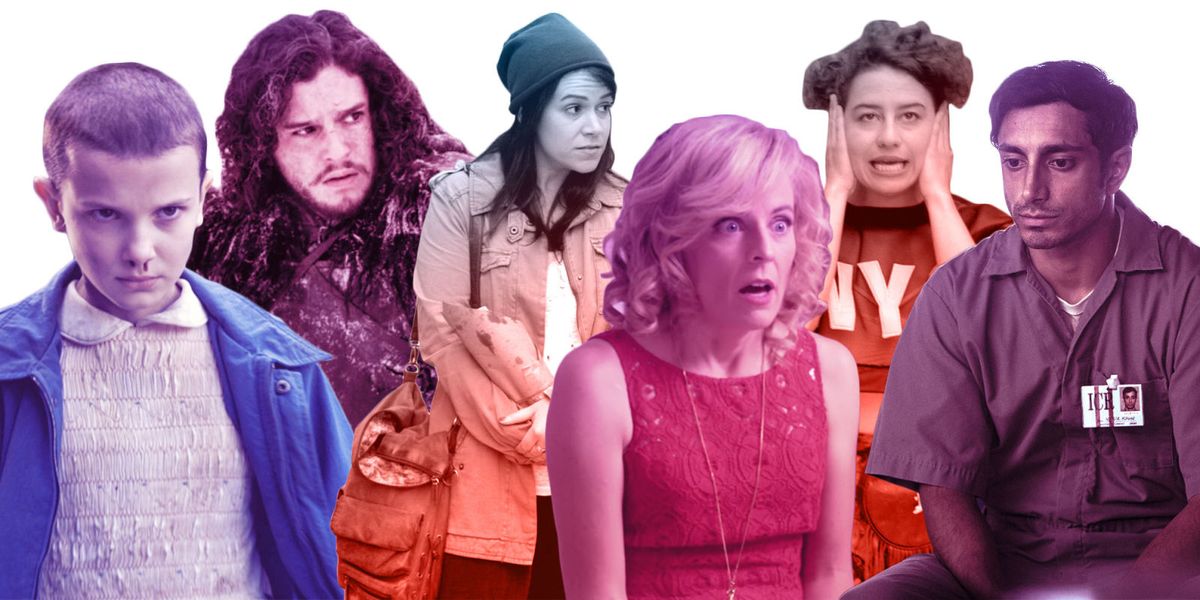
If you're a television fan, you've probably noticed a few fads in real shows like Survivor, This is Your Life, and Deadliest Catch. But what is the truth about these shows? There is no set of rules, so there are no right or wrong answers. Some production companies excel at making great shows. While others are more patient and show compassion for their talent, some are more aggressive.
Fake TV programs
Fake TV shows are those whose premise is not true. The story is often a spoof of some other show. Although there are numerous fake TV shows, this show is intended to be a broad poke at TV and 24-hour junk food entertainment. Movies are fond of pretending they're better than TV. Many parody low-rent TV programs.

Survivor
Survivor has fascinated viewers for decades. There are certain aspects to the show that may not be entirely real. This reality television show features real people competing to win real prizes. The producers and directors must ensure the safety of all contestants while creating an interesting storyline. One thing you can expect, however, is manipulative editing and questioning techniques.
This is Your Life
This is Your Life is a well-known American television show hosted by Ralph Edwards. It first aired on US radio back in 1948. Later, it was moved to NBC television. In the United Kingdom, the show was first broadcast on BBC Television in 1955. The show was originally a monthly series or fortnightly. It became a weekly feature in the third season. The web version of the show allows users to rate and vote for their favorite episodes.
Deadliest Catch
While the cast and crew of Deadliest Catch are presumably well-meaning, they are hardly responsible for the quality of the final television product. Instead, the Discovery Channel's producers select the "good" and the "bad" characters to create compelling stories. Many episodes of the show feature fishermen board fishing vessels and return to shore. The crews of film spend a lot time at sea to capture footage and then to create the perfect sequences.
Ice Road Truckers
You may be shocked at the dangers that ice truckers face if you have ever seen a real ice road trucker show. Truck drivers travel across icy roads and lakes in this documentary. Trucks transport supplies to miners in the Canadian tundra. Truckers like these are always at risk of getting stuck, and can take hours to reach help. These are not typical challenges of trucking.

Million Dollar Listing Los Angeles
Million Dollar Listing is a TV series that follows the rise of a young and ambitious real estate agent to the top in Los Angeles. Selling high-end homes requires charm, business savvy and good looks. Agents' chances of success may be affected by the housing slump in Los Angeles. But what about their personal lives and relationships? Will the show's popularity continue? Find out by watching the show's premiere. This show will premiere on April 14.
FAQ
What can advertising do for consumer behavior?
Two major ways advertiser behavior can be influenced by consumers are:
-
Advertising can lead us to associate certain things and brands with them. One example is when we see a McDonald's advert, we might think that McDonald's burgers tastes better than Burger King.
-
Advertisements show us how to behave. We will likely go to a store to purchase a new car if we are told by an advertisement.
Why should I be concerned about TV?
You should be concerned about television if you have a business.
It's one of the biggest sources of revenue for many companies.
It is a good idea to study all aspects of TV advertising before you start a business.
This way, you'll know exactly what kinds of ads you should run, where you should spend your money, and how to market your products effectively.
What type advertising is on TV?
Television is a communication medium where images are used for messages. It is the most watched medium in the entire world. The TV industry is worth more $100 billion each year.
There are many different kinds of ads on television. These advertisements can be classified into two types:
-
Commercials are also known as "TV commercials", and last for 30 seconds or more.
-
Programs/Series, also known as "programming", are also known. These programs typically last around 20 minutes. Some programs can be shorter.
Commercials are shown during the commercial breaks. These are usually between every half an hour of programming. These commercials can also be shown at times when there are no programs being broadcast. These include infomercials, before-and-after shows, and public service announcements.
Programs are the core of any channel. There are usually several series that air each week on most channels. Some networks air only one series per day. Some will show multiple series simultaneously. Some channels specialize in airing movies, sports events, news, etc.
Since its inception, advertising on television has evolved significantly. Television was originally used primarily for entertainment purposes in 1950s. People would watch I Love Lucy or Father Knows Best shows, then head outside to play and have fun with their friends. People started using television to find out more about products and services as technology improved. An example: A person could view an advertisement about a car to learn more about its features.
Statistics
- Radio is extremely accessible – 95 percent of cars have radios, and 99 percent of homes have radios. (marketingevolution.com)
- Television is a great brand awareness tool - Almost every American has a television, with 83 percent of adults having two or more, and American households keep their televisions on for 8.1 hours each day on average. (marketingevolution.com)
- In fact, 76% of people completely skip the commercials while watching their programs. (qualitylogoproducts.com)
- With OTT ad revenue set to increase from 45% to 60% over the next decade, AdTech pioneers and early adopters of OTT advertising will reap its benefits in the near future. (clearcode.cc)
- Video-ad views on OTT (over-the-top) devices grew 63% year over year in Q3 2016, and the trend is expected to continue, further crippling traditional TV advertising. (clearcode.cc)
External Links
How To
How do I buy TV time?
You must first have an idea. If you don’t then you don’t necessarily need to invest in airtime. Local stations can be reached for ideas. They are often looking for original content.
If you're lucky enough to find a station willing to give you free airtime, you should start by researching what they've done in the past. See if there is anything you could learn from the shows.
Next, create a script. It should be well-written, and properly structured. It doesn't really matter how long it takes, as long as you finish it in a reasonable time.
Finally, once you're happy with the script, send it to the station. Send it to the station with your name, information, and a description of yourself.
You may also need to give references (like other shows they've produced), as well as examples of any scripts that you've previously written.
If you receive a response, it will let you know if the show is possible. To get a response, contact someone who is directly involved in the show.